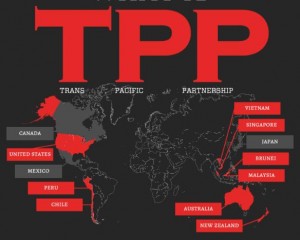At last week’s round of Trans Pacific Partnership (TPP) negotiations in Salt Lake City, access to medicines campaigners reported that the U.S. administration tabled a new proposal aimed at protecting brand name biologic drug companies from generic competition through a twelve year period of data exclusivity (a form of protection separate and in addition to patent protection already granted biologic products).
This proposal – if it becomes part of the final agreement – would lead to longer monopolies on expensive new medicines abroad, while blocking the administration’s own proposal to reduce the term of data exclusivity granted in the United States to seven years. Powerful groups in the U.S. have campaigned against it, while the industry and Congressional leaders have advocated for it.
Last week, fifteen civil society groups in the U.S. wrote President Obama asking him not to table this provision. The organizations signing the letter included the American Association of Retired People, the American Federation of State, County and Municipal Employees, and Consumers Union. They warned that this proposal – along with other proposals that would affect drug price negotiations – could “undermine access to affordable health care for millions in the United States and around the world,” and they urged Obama to “ensure that the TPP agreement and future trade agreements do not … bind the U.S. to a 12-year exclusivity period for brand-name biologic drugs.”
An earlier letter from AARP to the U.S. Trade Representative pointed out that proposal to require contracting parties to grant 12 years of data exclusivity would directly conflict with the Obama Administration’s plans to reduce the term of exclusivity granted in the US, thus saving billions in healthcare costs:
The Administration itself has proposed reducing the exclusivity period for brand-name biologics in its most recent FY 2014 budget and previous budgets. AARP strongly supports this proposal and believes increasing the availability of biosimilars will be a critical element of any comprehensive effort to contain health care costs. In fact, AARP has endorsed reducing the market exclusivity period for brand-name biologics from twelve years to seven that would result in a $3.8 billion savings (OMB, 2012) and biosimilars with prices that are 40 percent lower than their brand-name counterparts (CBO, 2011).
However, the administration has been under pressure from the drug industry and many Members of Congress to propose the data exclusivity provisions for a long time. Last March, Senators Baucus and Hatch (the Chairman and Minority Leader of the Finance Committee) wrote a letter to Obama asking that the TPP include 12 years of data exclusivity. The issue has come up Congressional hearings such as USTR Froman’s confirmation hearing and more recent trade policy hearings.





